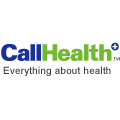Recovering from Stroke: Establishing Rehabilitation Goals
December 10, 2018People who have had a stroke have an increased risk of being hit by more, especially during the first year. Learn how to get on the road to post-stroke recovery and what to do for optimum rehabilitation.
My father's road to recovery after a stroke.
It happened recently, on a wintry November morning. I had planned a trip to Rajasthan with my 65-year old father. We reached the hotel early in the morning and decided to plan our day over breakfast. As we headed back to our room, my dad complained about blurry vision. I assumed it must be the tiredness from all the travelling. I even remember suggesting a power nap before we headed out for the day.
In about 15 minutes, he started feeling a tingling sensation in his arms. I still didnt suspect that it was a serious issue but decided to consult the doctor later. However, before we could enter our room, my father collapsed.
I panicked. I rushed inside and called for medical assistance immediately. Thankfully, the resident doctor arrived in an instant. The next thing I remember was being whisked away in an ambulance.
Click here to get doctor consultation Online
The MRI scan confirmed that a clot in the brain that triggered a stroke. He was also diagnosed with Aphasia. This meant his ability to talk, read, write and understand others when they speak was also affected.
As we began our journey to recovery. We realised that while the stroke was sudden the recovery process was going to be slow and we needed to take cautious slips.
Click here to Book a MRI Brain Stroke Protocol
The Aftermath
People who have had a stroke have an increased risk of being hit by more, especially during the first year. Factors like obesity, diabetes, high cholesterol and habits like smoking and heavy drinking increase the risk further. While in extreme cases it can cause paralysis, it often leaves one with cognitive impediments. My fathers case was one such. He started finding it difficult to keep a track of time, place and sometimes even names. It was like when you have something at the tip of your tongue but cant seem to remember exactly what. It can be quite an isolating experience for a stroke patient.
Also read about -All you need to know about Diabetes: Types, Symptoms & Tests
The Recovery Process
We arranged one-on-one sessions for speech therapy at home. The tutor also initiated simple exercises in vocabulary, reading and writing. Those days he would often have long spells of tiredness and fatigue. After hed regained some strength we enrolled for a 6-month long rehabilitation programme at the hospital. I accompanied him to several of these sessions to know more about what I should and should not do at home. It is important to note that life after a stroke could be vastly more challenging than before. Simple tasks could prove monumental to execute. Patients usually become susceptible to anxiety and depression when the healing process takes its time.
Also read about - Anxiety Disorders Risk Factors, Symptoms and Diagnosis
Therefore, it was important for us as a family to understand the key role we needed to play. You can start by observing these simple steps.
1. Your patience and support will be key to the patients recovery. Make sure to keep the energy positive and the encouragement regular.
2. Help establish rehabilitation goals. The nature of the goals depends on the individual and the severity of the stroke.
3. Being able to walk with the help of a support can be a realistic goal for some
4. Being able to drive again could be a realistic goal for some
5. Being able to perform simple tasks again can be a realistic goal for some
6. Sometimes, the patient may have to relearn a new skill like using only one hand for certain tasks.
7. Make sure you are attending enough therapy sessions to know how you can make a difference on a daily basis.
It is important to understand what the patient can do without help, can do with help and cannot do at all. Once this is established with the help of experts, a rehabilitation program can be built for recovery. This can be a mix of hospital visits and sessions by experts at home. You may have to consider help in the form of canes, walkers, communication aids and aids for bathing, dressing etc.
Since my parents stayed with me, it was easier for me to take care of my father. I took it one day at a time- asked for help when needed. It wasnt an easy ride. It can be tiring for both the patient and the caregiver. Eventually, we managed to get through all of it and begin to feel better. There are many forums and groups for caregivers to consult and seek support from. If you are tending to a stroke patient, it might help to maintain a dairy with regular updates on improvement. Every stroke creates a unique journey of recovery. I pray that no one else to go on this journey, but if you must, do it with a smile.
Article by Dr. Vighnesh Y, M.D (Internal Medicine)
Consultant Physician, CallHealth

